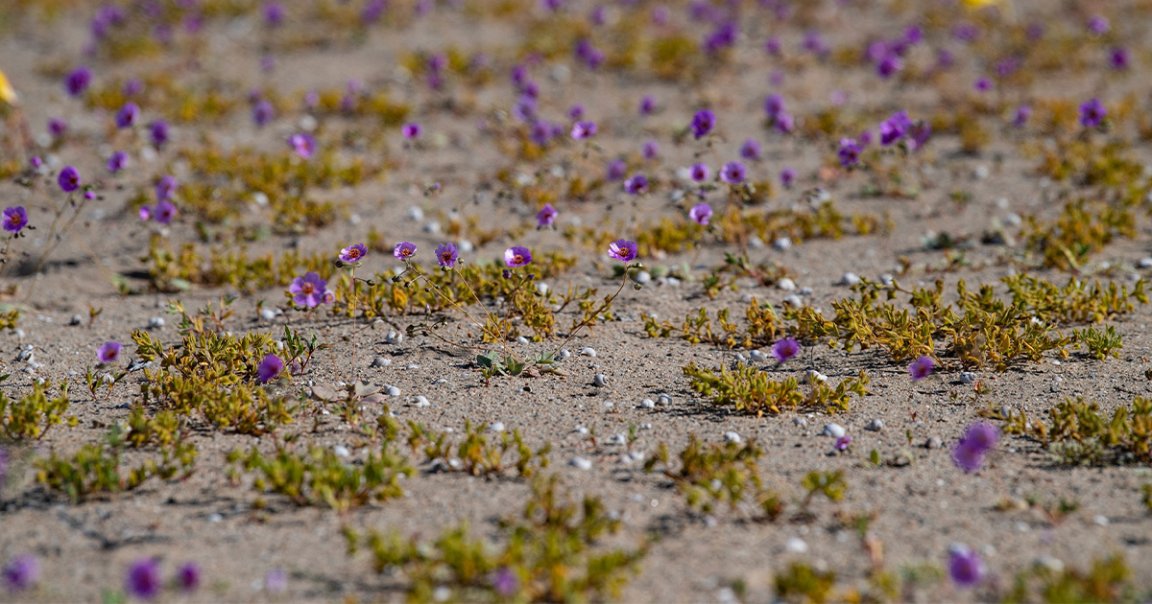
Desert Rose
Something magical is happening in the barren landscape of the Atacama Desert in Chile, considered the driest place on our planet with annual precipitation that can only be measured at a fraction of an inch.
Patches of delicate white and purple flowers have suddenly bloomed in parts of the Atacama, Reuters reports, after a bout of rare rainfall and a spike of warming temperatures coaxed dormant seeds and bulbs to burst into life in a place so arid that NASA scientists have used the desert as a stand-in for other planets.
But this particular occurrence is a bit of a surprise.
The Southern Hemisphere, where the desert is located, is right now in the middle of winter, and these blooms, which appear every couple of years and are made up of various native species such as the nolana bellflower, typically burst forth later in the calendar during a very brief spring.
Yet the climate pattern known as El Niño brought early rains to the area, forcing some of the drought-resistant seeds to grow and blossom earlier than expected.
Adios El Niño
Right now, Reuters reports, the patches of blossoms are so few that Chilean experts don’t consider the event to be the official spring flowering of the desert (the last time an early blooming happened was in 2015.)
But this may change if more rain comes and more is indeed expected to arrive, which may force more flowers to grow.
“In the meantime, we have to wait,” Chilean biologist Cesar Pizarro told Reuters.
While El Niño has made the desert bloom with warmer temperatures and welcome rain, the same climate pattern has made parts of the planet ridiculously hot, from California to Europe, according to the Associated Press.
While this El Niño, which emerged about a year ago, officially ended last month, it hasn’t stopped runaway heat waves juiced up by climate change.
More on El Niño: Scientists Find Remnants of Huge Coral Reef in Middle of Desert